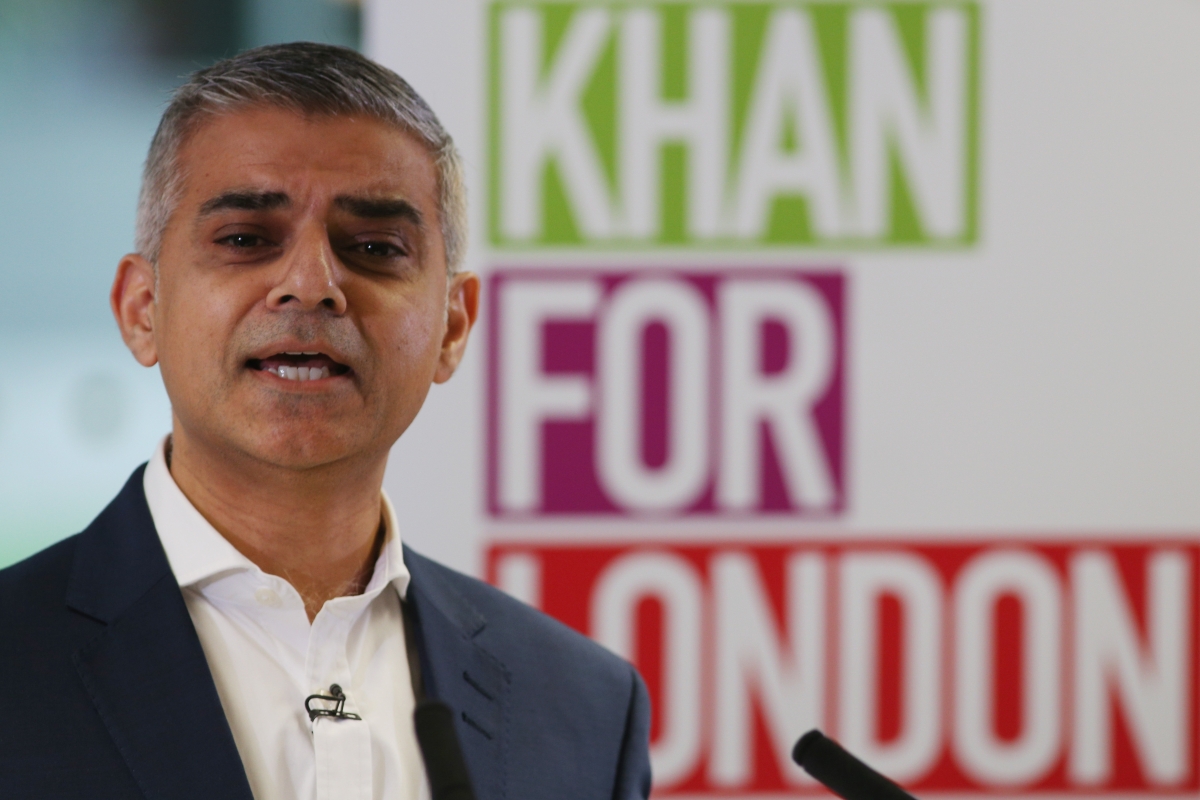London Mayor Sadiq Khan: Minorities should get coronavirus vaccine first
11/24/2020 / By Ramon Tomey

London Mayor Sadiq Khan expressed his intent to prioritize minorities when a vaccine against the Wuhan coronavirus (COVID-19) is rolled out. During a Nov. 16 evening appearance on BBC Radio, Khan asked the National Health Service (NHS) and Public Health England to factor in “additional things” in their criteria of people to be initially vaccinated. “Basically speaking, it’s done by age. But I have asked for additional things to be factored in, and that includes … black, Asian [and] ethnic minority Londoners who disproportionately suffered,” the mayor remarked.
Khan added: “My concern is that in London, there is a greater hesitancy to taking vaccines than in other parts of the country. [Vaccination for diseases such as] smallpox, polio, MMR [and] HPV [are] less in London. So one of the things we have got to do is to give Londoners the confidence [that] it’s worth getting this vaccine, and also make sure the most vulnerable [and] the most likely to catch the virus … get the vaccine first.”
A recent online survey conducted between Oct. 19 and Nov. 2 found that about one-third of London residents would not take or are unlikely to take a COVID-19 jab. Almost half of the survey’s respondents said they did not trust the NHS to roll out a vaccine in case it is ready.
Vaccines are not mandatory in the U.K. as of writing, since the government allows people to make their own informed decisions on the matter. However, Health Secretary Matt Hancock said the government would not rule out mandatory COVID-19 vaccination in case voluntary jabs do not slow down the spread of the coronavirus.
The London mayor’s comments came in light of the British government’s recent purchase of two vaccines against COVID-19. The Independent reported Nov. 17 that the U.K. purchased five million doses of drugmaker Moderna’s vaccine, touted as 94.5 percent effective. Earlier, the U.K. ordered 40 million doses of the vaccine made by American pharmaceutical company Pfizer and German firm BioNTech – which was found to have more than 90 percent effectivity rate.
Aside from the Pfizer and Moderna vaccines, British health authorities also hoped that home-grown drugmaker AstraZeneca’s COVID-19 jab will be available to the public by Dec. 25. Trials for AstraZeneca’s vaccine were suspended following reports of adverse reactions in September and a casualty the following month.
As of press time, the U.K. currently has around 1.5 million COVID-19 cases, according to data from Johns Hopkins University.
Sadiq Khan claims “structural racism” increased minority deaths during pandemic
Khan wrote in a piece for The Guardian back in April how black, Asian and ethnic minorities suffered more from “structural racism” during the coronavirus pandemic. His article said: “Even though it can be uncomfortable for some to acknowledge, we cannot ignore the barriers of discrimination and structural racism that exist in our society – which contribute to ethnic minorities being more likely to suffer from poverty, have underlying health conditions and work in insecure, low-paid jobs.”
More than a week after Khan’s piece was published, the NHS considered removing minority workers from more dangerous medical frontline positions. In a letter sent April 29, NHS Improvement Chief Operating Officer Amanda Pritchard called on local health service leaders to “risk-assess” staff and make the necessary arrangements in order to lessen their exposure to the coronavirus. (Related: Hospitals in London unable to cope due to SURGE in coronavirus cases.)
Pritchard’s letter elaborated: “Emerging U.K. and international data suggest that people from black, Asian and minority ethnic backgrounds are also being disproportionately affected by COVID-19. [On] a precautionary basis, we recommend [that] employers should risk-assess staff [members] at potentially great risk and make appropriate arrangements accordingly.”
Dr. Raghib Ali, a senior clinical researcher at the University of Cambridge’s MRC Epidemiology Unit, debunked the claim that “structural racism” is not to blame for coronavirus-related deaths among minorities. The government adviser said structural racism “is not a reasonable explanation,” adding: “If structural racism … was an important problem in healthcare outcomes, you’d expect it to be reflected not just in [COVID-19] but with other outcomes as well.”
Pandemic.news gives you the latest about the latest measures countries are implementing to fight COVID-19.
Sources include:
Submit a correction >>
Tagged Under:
Amanda Pritchard, coronavirus vaccine, covid-19 pandemic, England, ethnic minorities, london, london mayor, mandatory vaccination, National Health Service, NHS Improvement, Raghib Ali, Sadiq Khan, structural racism, United Kingdom, vaccines, Wuhan coronavirus
This article may contain statements that reflect the opinion of the author
RECENT NEWS & ARTICLES
Infections.News is a fact-based public education website published by Infections News Features, LLC.
All content copyright © 2018 by Infections News Features, LLC.
Contact Us with Tips or Corrections
All trademarks, registered trademarks and servicemarks mentioned on this site are the property of their respective owners.





















